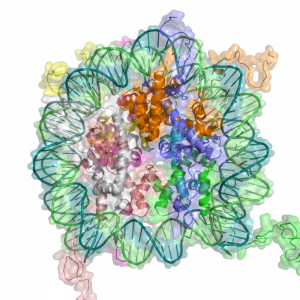Epigenetics translates to “above” or “on top of” genetics. To be more specific, Epigenetics is the study of how modification of gene expression can cause changes in many organisms.
A new study from Karolinska Institutet in Sweden explores the theory that long-term endurance training alters the epigenetic pattern in the human skeletal muscle. The team that conducted the research also explored strong links between these altered epigenetic patterns and the activity in genes controlling improved metabolism and inflammation.
The study was conducted using 23 young and healthy men and women. The men and woman would perform one-legged cycling – where the untrained leg would be the control of the experiment. Four times a week and over the course of three months, the volunteers would participate in a 45 minute training session. Though skeletal muscle biopsies, supervisors would measure their markers for skeletal muscle metabolism, methylation status of 480,000 sites in the genome, and activity of over 20,000 genes.
At the end of the study, the researchers concluded that there was a strong relationship between epigenetic methylation and the change in activity of 4000 genes in total. Epigenetic methylation is defined as the “addition of a methyl group to a substrate or the substitution of an atom or group by a methyl group. ” Moreover, it was determined that methylation levels increased when involved in skeletal muscle adaptation and the metabolism of carbohydrates. However, methylation levels decreased in regions associated to inflammation.
Furthermore, Carl Johan Sundberg found that “endurance training in a coordinated fashion affects thousands of DNA methylation sites and genes associated to improvement in muscle function and health.” He believes that this determination could be vital to understanding the treatment of diabetes and cardiovascular disease as well as how to properly maintain good muscle function throughout life.
This article relates very much to our work in class as we learn the Molecular Genetics Unit. It connects because we are learning what happens when mutations occur in one’s genome and the impacts those mutations have on someone. For example, cancer is one of the most researched and explored topics in regard to how modification of gene expression alters organisms. Oncogenes and Tumor suppressor genes have vital impacts on cellular division, changes to cellular function, and the growth of tumors.



Leave a Reply